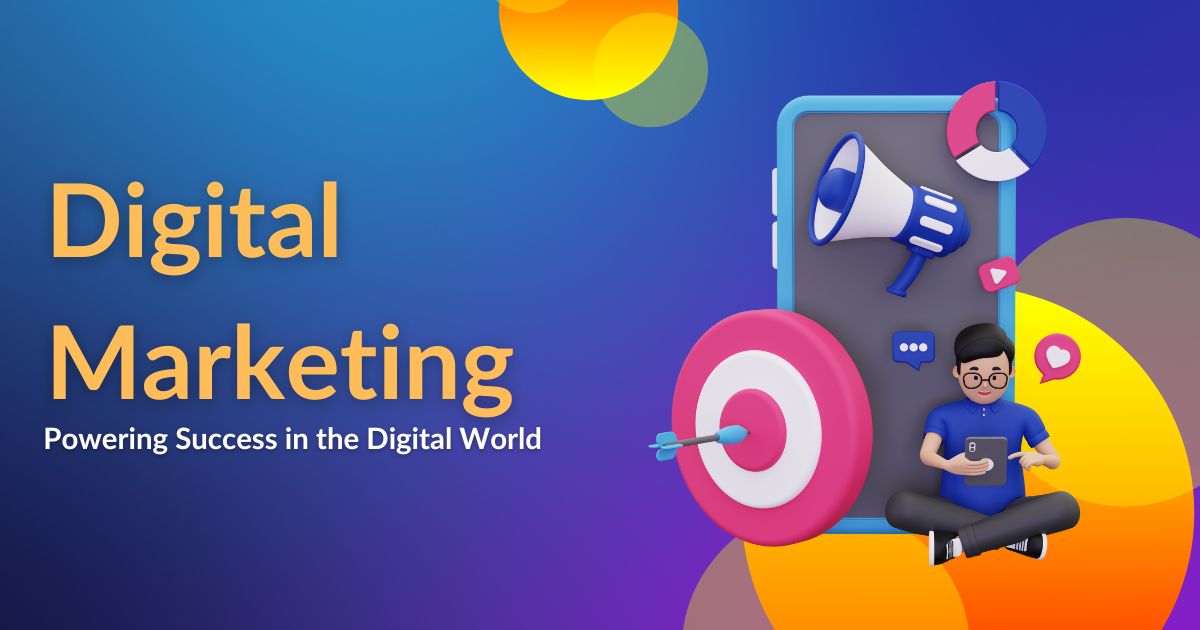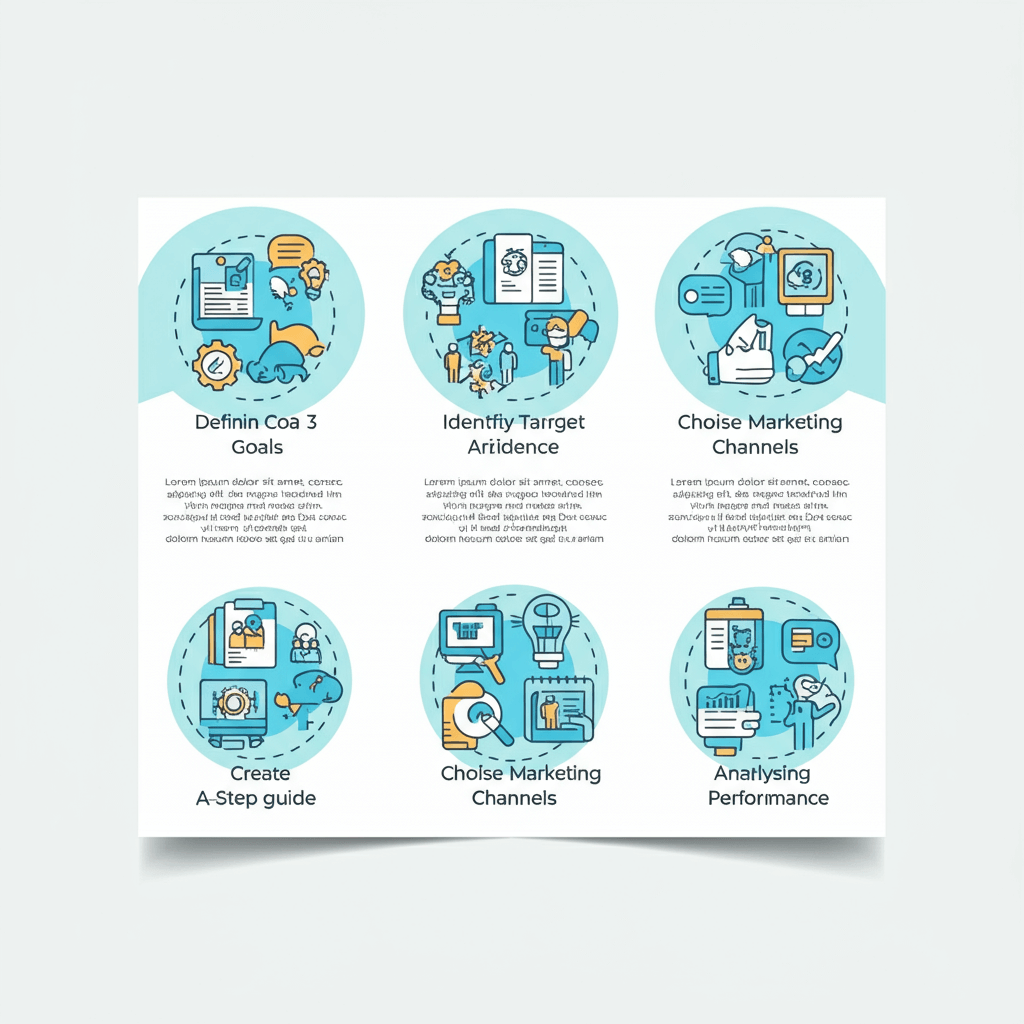
Digital marketing offers diverse career paths in SEO, content, social media, PPC, email, and analytics. Start with free courses, gain hands-on experience, specialize, and build a strong portfolio to launch your career successfully.
Digital marketing is one of the most dynamic and in-demand fields today. Businesses of all sizes need skilled professionals who can navigate the online landscape to attract customers, build brand awareness, and drive revenue. If you’re creative, analytical, and eager to learn, a career in digital marketing could be a perfect fit. But where do you even begin?
Breaking into a new industry can feel overwhelming, especially one that changes as quickly as digital marketing. You might be wondering what skills you need, what roles are available, and how you can get your foot in the door without prior experience.
This guide will provide a clear roadmap to starting your journey. We’ll explore the core disciplines within digital marketing, outline the essential skills you’ll need to develop, and offer practical, step-by-step advice on how to land your first role. By the end of this post, you’ll have a concrete plan to launch a successful career.
First, Understand the Core Areas of Digital Marketing
Digital marketing isn’t a single job; it’s an ecosystem of specialized disciplines working together. While you don’t need to be an expert in all of them, understanding the fundamentals of each is crucial. This knowledge will help you decide which area interests you most and how different roles collaborate. To see how each role fits together, check out what a digital marketing expert actually does.
Search Engine Optimization (SEO)

SEO is the practice of optimizing a website to rank higher in search engine results for specific keywords. The goal is to increase organic (non-paid) traffic from platforms like Google and Bing. SEO specialists focus on on-page elements (like content and keywords), off-page factors (like backlinks), and technical aspects (like site speed and mobile friendliness). Learn more in this complete SEO guide for digital marketing.
Content Marketing
Content marketing involves creating and distributing valuable, relevant, and consistent content to attract and retain a clearly defined audience. This can include blog posts, videos, podcasts, ebooks, and infographics. The goal is to build trust and authority, ultimately driving profitable customer action.
Social Media Marketing (SMM)
This area focuses on platforms like Instagram, TikTok, LinkedIn, and Facebook to grow brand visibility and drive engagement. If you want to understand how social fits into the bigger picture, explore how digital marketing includes social media.
Paid Advertising (PPC/SEM)

Pay-per-click (PPC) or search engine marketing (SEM) involves running paid advertisements on platforms like Google Ads and Bing Ads. Marketers bid on keywords, and their ads appear at the top of search results. You only pay when someone clicks on your ad. This discipline requires strong analytical skills to manage budgets and optimize campaigns for return on investment (ROI).
Email Marketing
Email marketing is one of the most effective digital marketing channels. It involves building a list of subscribers and sending them targeted messages, such as newsletters, promotional offers, and company updates. The goal is to nurture leads, build customer loyalty, and drive sales. For practical techniques, see unlock engagement with interactive emails.
Data Analytics
Underpinning all digital marketing efforts is data. Analytics involves tracking, measuring, and interpreting data from various channels to understand campaign performance and user behavior. Professionals in this area use tools like Google Analytics to provide insights that inform strategy and improve results.
Analytics helps measure user behavior and campaign performance. To master this area, check out digital marketing analytics for smarter campaigns.
How to Get Started in Digital Marketing: A 5-Step Guide

Now that you have an overview of the landscape, let’s walk through the practical steps you can take to launch your career.
Build Foundational Knowledge with Free Resources
You don’t need an expensive degree to learn digital marketing. The internet is filled with high-quality, free resources that can teach you everything you need to know to get started.
- Google Digital Garage: Offers a comprehensive “Fundamentals of Digital Marketing” course that comes with a free certification from the Interactive Advertising Bureau (IAB). It’s a fantastic starting point.
- HubSpot Academy: Provides a wealth of free courses and certifications in content marketing, social media, email marketing, and more. Their content is industry-recognized and highly practical.
- Ahrefs and Semrush Blogs: These are leading SEO tools, and their blogs are goldmines of information for anyone looking to understand SEO and content marketing.
- YouTube: Channels like Neil Patel, Brian Dean (Backlinko), and Ahrefs offer countless video tutorials on specific topics.
Commit to learning for a few hours each week. Start broad with a fundamentals course, then dive deeper into the areas that spark your interest.
Choose a Specialization
Once you have a grasp of the basics, it’s time to choose a niche. Trying to be a “jack-of-all-trades” can make it difficult to stand out. Instead, aim to become a “T-shaped marketer”—someone with broad knowledge across all disciplines (the top of the “T”) and deep expertise in one or two areas (the vertical bar of the “T”).
Ask yourself:
- Do you love writing and storytelling? Content marketing might be for you.
- Are you fascinated by data and numbers? Look into PPC or data analytics.
- Are you creative and enjoy building communities online? Social media marketing could be a great fit.
- Do you enjoy solving puzzles and understanding how systems work? SEO might be your calling.
Focusing on a specialization will make your learning more targeted and your skills more valuable to employers.
The Role of Analytics in Driving Marketing Success

Data-driven decision-making is at the heart of effective digital marketing. Understanding analytics allows marketers to measure campaign performance, identify strengths and weaknesses, and optimize strategies for maximum results. Tools like Google Analytics, Google Data Studio, and Hotjar help track website traffic, user behavior, and conversion rates.
By interpreting this data, marketers can answer critical questions: Which campaigns generate the most leads? Which channels drive the highest ROI? Where are users dropping off in the sales funnel? Even beginners can start by monitoring simple metrics such as page views, click-through rates, and bounce rates. Over time, learning to analyze and visualize data will not only improve campaign results but also make you a more competitive candidate in the job market.
Gain Hands-On Experience
Theory is important, but practical experience is what will get you hired. You don’t need a formal job to start building a portfolio.
- Start a Personal Project: Create your own blog, YouTube channel, or Instagram theme page. This is your personal laboratory. Use it to practice SEO, create content, build an email list, and run small ad campaigns. Document your process and your results.
- Offer Your Services for Free (or a low cost): Reach out to a local small business, a non-profit, or a friend with a side hustle. Offer to manage their social media, write a few blog posts, or set up a basic email newsletter. This will give you real-world experience and a valuable case study for your portfolio.
- Find an Internship: Many companies offer paid or unpaid internships for aspiring digital marketers. These are excellent opportunities to learn from experienced professionals and get your foot in the door.
Get Certified in Key Tools
Certifications prove to employers that you have a verified skill set. While they don’t replace experience, they can significantly boost your resume.
- Google Analytics Individual Qualification (GAIQ): Essential for anyone in digital marketing.
- Google Ads Certifications: Crucial for anyone interested in PPC.
- HubSpot Content Marketing Certification: Highly respected in the industry.
- Meta Blueprint: For those looking to specialize in Facebook and Instagram advertising.
Most of these are free and can be completed online at your own pace. Add them to your LinkedIn profile and resume as you earn them.
Network and Build Your Personal Brand
Your network is one of your most valuable assets. Start connecting with people in the industry.
- Engage on LinkedIn: Follow digital marketing leaders, share what you’re learning, and comment thoughtfully on posts. Don’t just be a passive observer; participate in the conversation.
- Join Online Communities: There are countless marketing communities on platforms like Slack, Facebook, and Reddit. These are great places to ask questions, share knowledge, and find job opportunities.
- Attend (Virtual) Events: Many webinars and online conferences are free to attend. They offer a chance to learn from experts and connect with other attendees.
Building a personal brand shows that you can market the most important product of all: yourself.
Freelancing and Entry-Level Opportunities
For beginners without formal experience, freelancing can be an effective way to break into the industry. Platforms like Upwork, Fiverr, and Freelancer allow you to work on small projects ranging from social media management to content creation or PPC campaigns. Freelancing not only provides hands-on experience but also helps you develop a portfolio that showcases your skills to potential employers.
Entry-level positions, internships, and volunteer opportunities are equally valuable. Small businesses, startups, and non-profits often welcome aspiring marketers who are eager to learn and contribute. These opportunities allow you to practice real-world strategies, learn client management, and understand the practical side of digital marketing campaigns. Even a few months of experience can be transformative in terms of building confidence, understanding workflows, and developing a professional network.
Staying Ahead with Emerging Trends and AI in Digital Marketing
Digital marketing is rapidly evolving, with new technologies like artificial intelligence (AI), machine learning, and chatbots transforming how brands engage with audiences. AI can help with predictive analytics, personalized content recommendations, automated ad optimization, and even creating content at scale.
For example, AI tools like ChatGPT, Jasper, or Copy.ai assist marketers in drafting social media posts, emails, or ad copy quickly. Staying updated with trends such as voice search optimization, video marketing, and AR/VR experiences allows you to anticipate changes and innovate in your campaigns. As a beginner, experimenting with emerging tools and following industry news ensures that you stay ahead of the curve.
Building a Portfolio That Lands Jobs
A strong portfolio is often more important than a resume in digital marketing. Employers want to see tangible results that demonstrate your ability to execute campaigns effectively. Start by showcasing personal projects, freelance work, internships, or even volunteer projects.
Include examples of content you’ve created, social media campaigns you’ve managed, websites you’ve optimized, or ads you’ve run. Be sure to quantify results whenever possible—for instance, “Increased blog traffic by 40% in 3 months” or “Boosted social media engagement by 25%.” A well-documented portfolio not only validates your skills but also gives employers confidence that you can contribute immediately.
Staying Current in an Ever-Changing Industry
Digital marketing is a constantly evolving field. Algorithms, consumer behaviors, and technologies change rapidly, and marketers must stay informed to remain competitive. Following industry blogs, subscribing to newsletters, and participating in webinars are essential habits. Resources like Neil Patel, HubSpot Blog, Social Media Examiner, and Marketing Land provide updates on trends, best practices, and new tools.
Professional communities and networking groups—both online and offline—offer insights into real-world challenges, new campaign strategies, and emerging technologies. Attending digital marketing conferences or virtual summits can provide exposure to thought leaders and allow you to understand where the industry is heading. Lifelong learning is not optional in digital marketing; it’s an integral part of sustaining and growing a successful career.
Your Next Steps
Breaking into digital marketing is an achievable goal for anyone willing to put in the effort. It’s a field that rewards curiosity, adaptability, and a genuine desire to learn. By building a solid foundation of knowledge, gaining hands-on experience, and connecting with others in the industry, you can position yourself for a successful and fulfilling career.
Start today by enrolling in one of the free courses mentioned above. Choose one area that excites you and commit to mastering it. The journey may seem long, but every article you read, every video you watch, and every project you complete is a step in the right direction.
Frequently Asked Questions (FAQ)
Do I need a degree to start a career in digital marketing?
No. While a degree can help, practical experience, certifications, and demonstrable skills often matter more to employers. Many successful digital marketers come from self-taught backgrounds.
How long does it take to get a digital marketing job?
It depends on your commitment to learning, portfolio building, and networking. With consistent effort, some beginners land their first entry-level role within 3–6 months.
Which area of digital marketing pays the most?
Salary varies by role, experience, and location. Generally, positions like PPC/SEM specialists, marketing automation managers, and analytics experts tend to have higher earning potential, but senior roles in all disciplines can be lucrative.
Can I freelance in digital marketing without prior experience?
Yes, starting with smaller projects like social media management or content writing allows beginners to gain experience. Over time, you can expand your services and increase rates.
What’s the best way to gain hands-on experience if I have no job opportunities?
Start a personal project such as a blog, social media page, or small e-commerce store. These projects allow you to experiment, track results, and build a portfolio to showcase to potential employers.

Leave a Reply